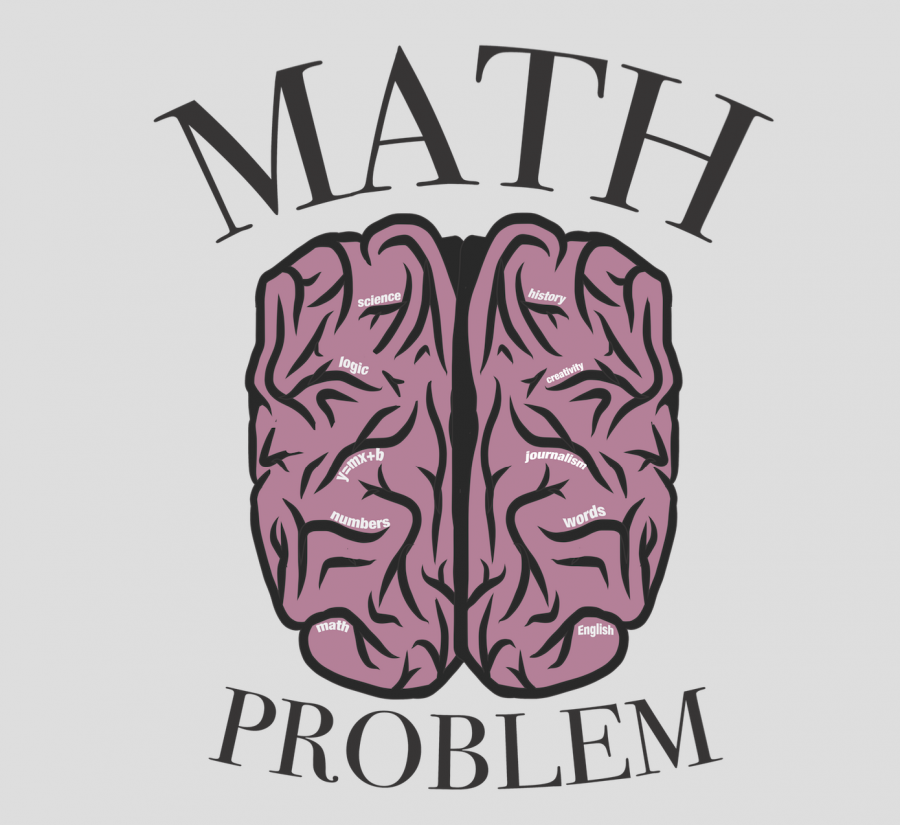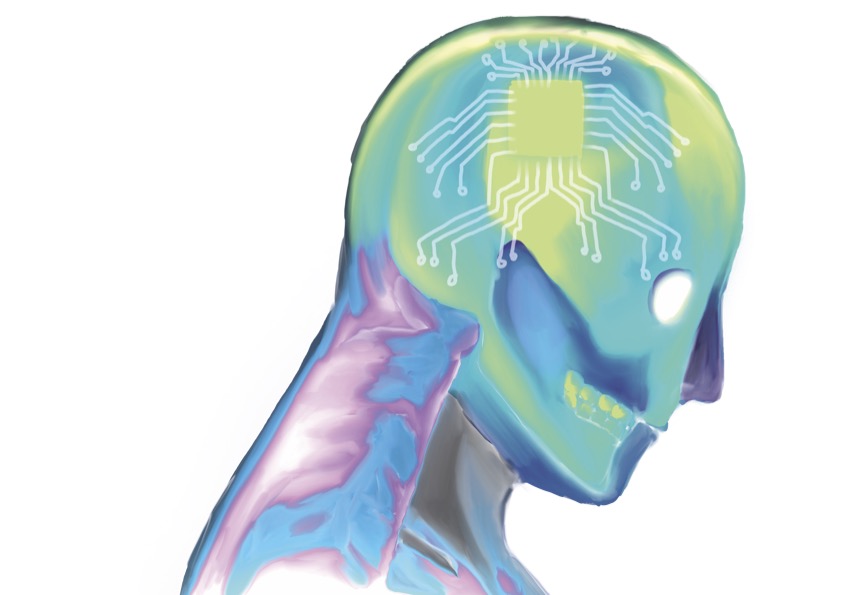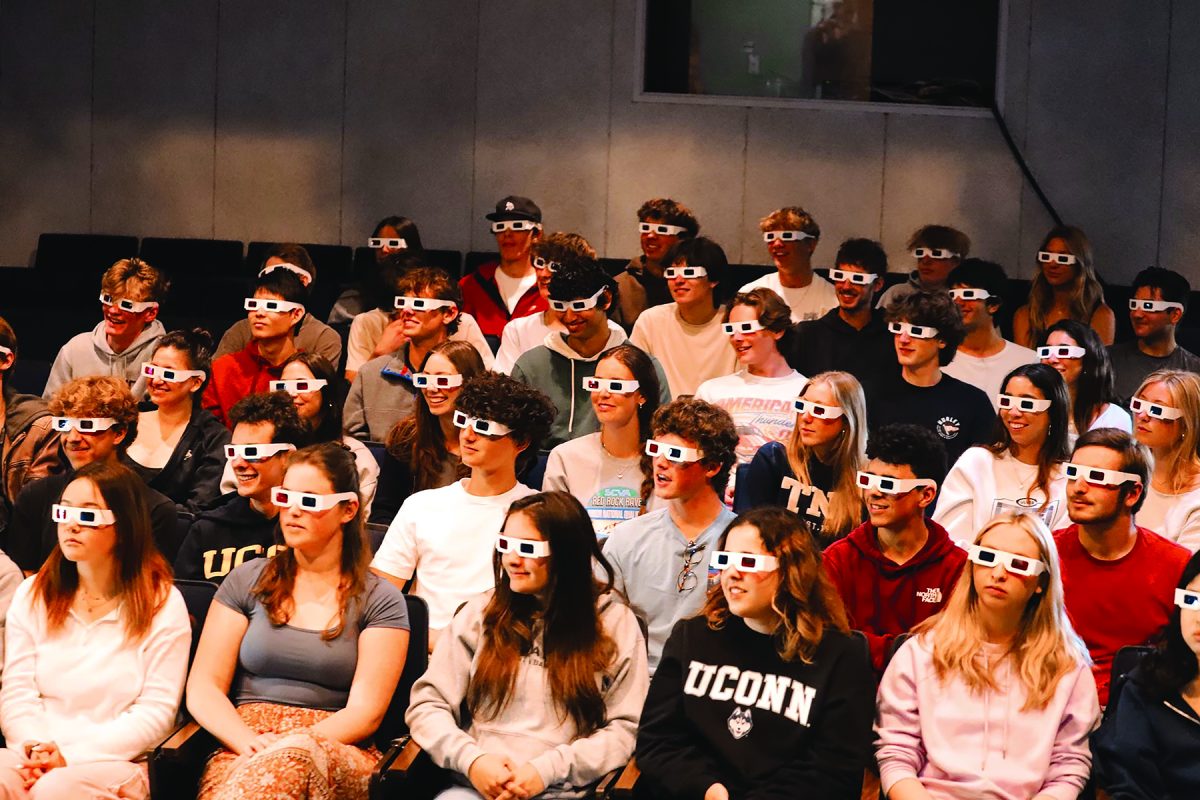The Math Problem
October 20, 2016
We have a problem — a math problem. The choice students have to make when choosing between Pre-Calculus Honors and Pre-Calculus. The students who don’t enjoy math are not the only ones having a hard time trying to solve this problem.
Consider these two sides. You are a left-brained person who thinks logically, learns through words, and naturally understands math more than English. You are a right-brained person who thinks creatively, learns through visualization, and naturally understands English more than math. Which side are you?
Well, whatever side you may think you are is a myth. One cannot strictly be left or right brained. AP Pyschology instructor Meghan Roarty said that there are significant differences between the left and right hemisphere: “the truth is, our two hemispheres are fundamentally more similar than they are different. We need both hemispheres intact and in communication with each other to be able to complete most tasks, but especially more complex ones, such as solving an involved mathematical equation or composing a masterful symphony.” Although the myth is false, people generally do lean toward either English, history and words or math, science and numbers.
I consider myself to be a little bit of both, but one thing’s for sure — math is not my thing. Yes, after a while, I can figure it out, but it doesn’t come to me as easily as words and humanities-related things do. Putting my preferences aside, whether you consider yourself to be a math person, English person or even a blend of both, it’s usually hard to figure out course selections, specifically, whether to take honors or non-honors Pre-Calculus.
Both courses are very good, but they are also very different. This difference creates a difficult choice for kids who desire to take honors courses but who are not necessarily math-or science-oriented people. It is even hard for kids who are math – or science-oriented people.
No one can deny that Daniel Ary’s Pre-Calculus Honors course is fast-paced and time-consuming, historically preparing its students for success in the AB and BC AP Calculus courses for years.
Doing well in those courses has led students to earn passing scores or above on the AP exam. Last year’s 2016 test yielded 100 percent of students in BC Calculus and 78 percent of students in earning a passing score or above.
When talking about his students this year, Ary said, “[they] are working very diligently, [and although] they were initially a little overwhelmed by the homework, we have tried to get it more under control to 35 or 45 minutes per night.”
Ary went on to say that, although there are a few English people in his class who are “doing quite well,” the majority of people who take his honors course are generally, “people who you would say have kind of a ‘math head’ and believe math is important.”
Sully Israel, a sophomore who’s currently taking Ary’s class, is one of the more math-oriented people. When explaining why he’s taking the class, he said, “I [would rather] be in a more challenging class and get an ‘okay’ grade than be in an easier class and get a better grade. I want to be an engineer, so I need to have math skills that are on a higher level, so for me, it makes more sense to take honors.”
Having just finished Pre-Calculus Honors and currently taking AP Calculus BC, junior Sophia Fay said, “He wants all of his students to succeed, but in order to succeed, his students need to put in the time and effort to actually learn the information.”
In the regular Pre-Calculus course, the teacher changes from year to year depending on fluctuating class sizes and the complexities of scheduling.
This year’s teacher is Izabela Santos. Pre-Calculus prepares you well for AP Calculus A or AP Stats, but the course moves at a slower pace, consuming less time consuming and is less stressful.
Although the courses use different textbooks — with either Pre-Calculus’ $18 textbook or Pre-Calculus Honors’ $77 textbook along with the $188 AP Calculus AB textbook — both courses cover the same Pre-Calculus material, but in the Pre-Calculus Honors course students cover a semester’s worth of AP Calculus AB during the fourth quarter.
After considering the time demanding factor of each course, there are two more calculations that need to be considered: one, the potential to gain the .5 GPA bump of an honors course, and two, the opportunity to show colleges that you are taking the ‘most challenging’ course load.
Either you can choose to dedicate a larger portion of your homework time to the honors course and enjoy the GPA bump, or you can focus your time on other courses, extracurriculars, and, of course, this thing we value called life.
This year, the two honors and two non honors Pre-Calculus classes were strategically scheduled during the same periods (A and D) so that one could more easily switch courses if need-be. Because several students decided during the summer that Pre-Calculus Honors wasn’t for them, in the beginning of the school year, there wasn’t a ‘massive exodus’ like there was last year.
Because of A period AP English Language, some people weren’t able to switch into A period Pre-Calculus non Honors, creating an overcrowded D period Pre-Calculus and a more spacious A period Pre-Calculus. Although there was some hesitancy in bringing more students into the overpacked D period, the students who wanted to switch into Pre-Calculus, including those going into D period, were accommodated for.
This year there are 12 students in Pre-Calculus Honors (two freshmen, eight sophomores, and two juniors) and 30 students (four sophomores and 26 juniors) in standard. Last year, the ratios of each class were more equal with 17 students in honors (11 sophomores, five juniors, and one senior) and 18 students in standard (one sophomore, nine juniors, and eight seniors).
Based on the number of people from each grade in the honors vs. non honors class, it is clear that the key to being in Mr. Ary’s class is having enough time to do the work. Juniors and seniors generally have less time than sophomores and freshmen do, so what ends up happening is more sophomores end up being able to take the honors course and more juniors end up taking the standard class.
Juniors take so many APs and are involved in so many extra curriculars that, “[when] they take a strong honors course like Pre-Calculus Honors, they become overwhelmed by just not having enough time,” Ary said.
Junior Tiffany Yabsley, who didn’t have enough time for the honors course, having had Santos last year for Algebra II/Trig Honors, said, “I like Ms. Santos’ teaching style. It makes a lot of sense to me.”
Along with the “left” and “right” brain myth, there is another one – the idea that in order to get into a good college, one needs always to take the ‘hardest’ courses.
Yes, it does look good to have APs and honors on your transcript, but you don’t necessarily need all of your courses to be honors or APs.
Although he acknowledges that, “the relative strengths of two transcripts can often make the difference when colleges are choosing between applicants,” college counselor Matt Struckmeyer does point out, “all other things are seldom equal — the students have a range of qualities about them that make them appealing to colleges in different ways.”
He said many students who take the hardest courses and still don’t get accepted into their “preferred colleges” because “the college decides that there was little that was compelling about the student other than the fact that they were committed to working extremely hard, and there were other students with abilities or distinctions that were more eye-catching.”
As college gets closer students supposedly start to focus more on what they care about and feel to be important. But this is hard to do when you feel the need to, at the same time, be taking the hardest courses — even if they aren’t the classes you care about most.
“I wish kids had more time to relax and just be kids,” Ary said. Whichever of the two courses you have chosen or will choose to take, have fun with your math problems.







